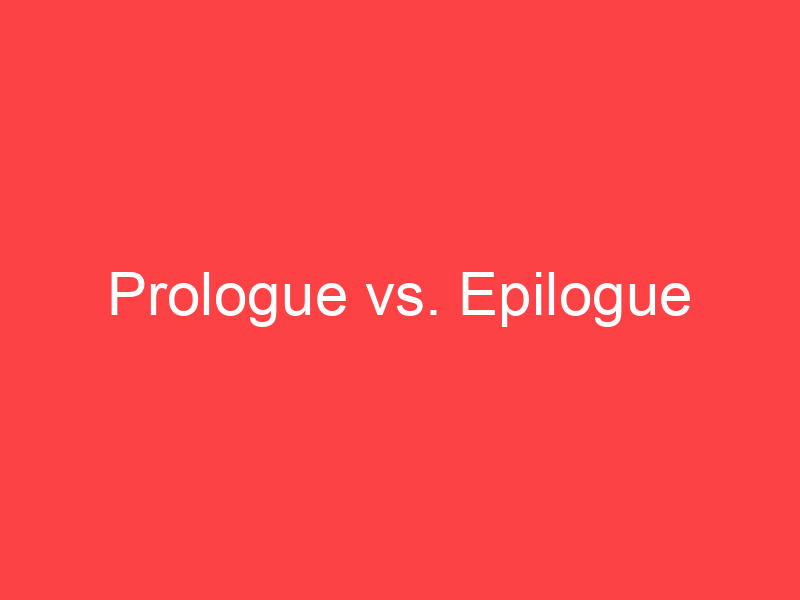Main Difference
The main difference between Prologue and Epilogue is that the Prologue is a opening to a story that establishes the setting and gives background details and Epilogue is a literary device
-
Prologue
A prologue or prolog (from Greek πρόλογος prologos, from πρό pro, “before” and λόγος logos, “word”) is an opening to a story that establishes the context and gives background details, often some earlier story that ties into the main one, and other miscellaneous information. The Ancient Greek prólogos included the modern meaning of prologue, but was of wider significance, more like the meaning of preface. The importance, therefore, of the prologue in Greek drama was very great; it sometimes almost took the place of a romance, to which, or to an episode in which, the play itself succeeded.
It is believed that the prologue in this form was practically the invention of Euripides, and with him, as has been said, it takes the place of an explanatory first act. This may help to modify the objection which criticism has often brought against the Greek prologue, as an impertinence, a useless growth prefixed to the play, and standing as a barrier between us and our enjoyment of it. The point precisely is that, to an Athenian audience, it was useful and pertinent, as supplying just what they needed to make the succeeding scenes intelligible. But it is difficult to accept the view that Euripides invented the plan of producing a god out of a machine to justify the action of deity upon man, because it is plain that he himself disliked this interference of the supernatural and did not believe in it. He seems, in such a typical prologue as that to the Hippolytus, to be accepting a conventional formula, and employing it, almost perversely, as a medium for his ironic rationalism.
-
Epilogue
An epilogue or epilog (from Greek ἐπίλογος epílogos, “conclusion” from ἐπί epi, “in addition” and λόγος logos, “word”) is a piece of writing at the end of a work of literature, usually used to bring closure to the work. It is presented from the perspective of within the story. When the author steps in and speaks indirectly to the reader, that is more properly considered an afterword. The opposite is a prologue—a piece of writing at the beginning of a work of literature or drama, usually used to open the story and capture interest. Some genres, for example television programs and video games, call the epilog an “outro” patterned on the use of “intro” for “introduction”.
-
Prologue (noun)
A speech or section used as an introduction, especially to a play or novel.
-
Prologue (noun)
One who delivers a prologue.
-
Prologue (noun)
A component of a computer program that prepares the computer to execute a routine.
-
Prologue (noun)
An individual time trial before a stage race, used to determine which rider wears the leader’s jersey on the first stage.
-
Prologue (verb)
To introduce with a formal preface, or prologue.
-
Epilogue (noun)
A short speech, spoken directly at the audience at the end of a play
-
Epilogue (noun)
The performer who gives this speech
-
Epilogue (noun)
A brief oration or script at the end of a literary piece; an afterword
-
Epilogue (noun)
A component of a computer program that prepares the computer to return from a routine.
-
Epilogue (verb)
To conclude with an epilogue.

